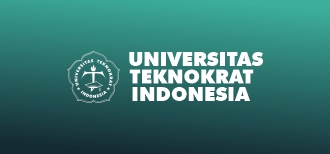
Achmad Yudi Wahyudin, M.Pd.
Centre for Literature, Culture and Education
In an era dominated by technological advancement, Artificial Intelligence (AI) has seamlessly exerted its influence into various aspects of our lives, and the field of education is no exception. Uncovering the transformative potential of AI in reshaping the dynamics of student learning and teacher guidance raises an important question: Are educators in Indonesia ready to harness the power of AI in the global education landscape? In this insightful article, we explore the readiness of educators in Indonesia and globally to seamlessly implement AI into educational narratives.
The global education arena is undergoing rapid evolution, with AI emerging as a heralded transformation catalyst. AI-enabled tools and platforms present opportunities for customized learning experiences, proficient identification of individual strengths and weaknesses, and dynamic content adaptation to suit each student’s pace. However, to fully utilize AI’s capabilities, educators must be equipped with the necessary knowledge and skills. In developed countries, educators are actively implementing AI in their teaching methodologies, indicating their willingness to adapt to changing educational paradigms. However, the scenario in Indonesia paints a different picture.
Indonesia, like many other developing countries, faces many obstacles in ensuring the readiness of educators for AI integration. The main challenge lies in the digital divide, where not all teachers or students have access to important technology and internet connectivity, resulting in unequal competition. Additionally, a lack of resources to train educators in AI integration and a lack of awareness regarding its benefits hinders progress. To align with global education benchmarks, policymakers must channel investments into infrastructure, training initiatives and awareness campaigns.
At the global level, countries such as China, the United States, and the United Kingdom have made great progress in AI integration, and they are seeing educators wholeheartedly embrace the technology to improve learning outcomes. They leverage AI-powered tools to simplify administrative tasks, provide personalized feedback, and identify at-risk students. This educational progress underscores the readiness of educators to welcome the digital revolution. For Indonesia to compete on the global education stage, educators must demonstrate the same desire to learn and integrate AI, which reflects the progress these countries are experiencing.
In conclusion, the readiness of educators in Indonesia to adopt AI in education is still lagging behind global standards. The digital divide, coupled with limited resources and limited awareness, poses formidable challenges. However, the potential benefits of AI in education are enormous, and Indonesia can bridge this gap through strategic investments in infrastructure, comprehensive educator training, and increasing awareness of the benefits of AI. To stay in line with the global shift towards the integration of AI in education, educators in Indonesia must be ready to welcome this technological revolution, empowering it